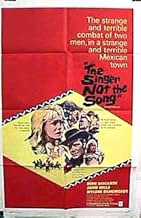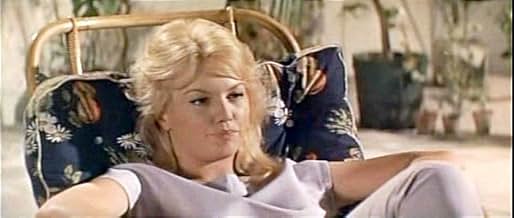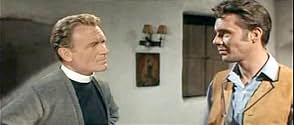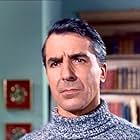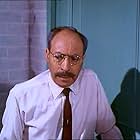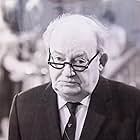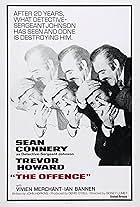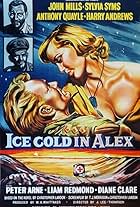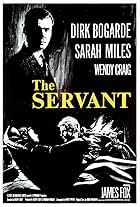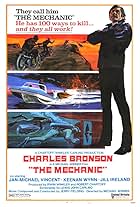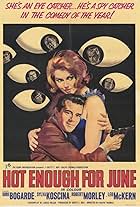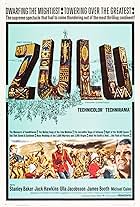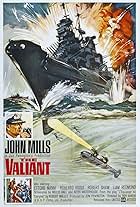In a small Mexican town, a Catholic priest (Sir John Mills) and a local bandit (Sir Dirk Bogarde) clash, but the brave priest ultimately wins the outlaw's respect.In a small Mexican town, a Catholic priest (Sir John Mills) and a local bandit (Sir Dirk Bogarde) clash, but the brave priest ultimately wins the outlaw's respect.In a small Mexican town, a Catholic priest (Sir John Mills) and a local bandit (Sir Dirk Bogarde) clash, but the brave priest ultimately wins the outlaw's respect.
Norman Florence
- Vito
- (as Nyall Florenz)
Arthur Brough
- Burning haystacks Farmer
- (uncredited)
- Director
- Writers
- All cast & crew
- Production, box office & more at IMDbPro
Storyline
Did you know
- TriviaAfter the J. Arthur Rank Organisation insisted that Sir John Mills had to play the priest, Sir Dirk Bogarde became so incensed that he told director Roy Ward Baker: "I promise you, if Johnny plays the Priest, I will make life unbearable for everyone concerned."
Featured review
My first (and for a long time) only viewing of this film was way back in the mid-1980s (during the early days of VHS in my neck of the woods) via a tape of a local TV screening my father loaned from a friend of his; even though I was aware of a couple of Italian TV showings over the years, I never managed to catch up with it – until another friend of my father’s alerted me (around Good Friday of last year) that it had been released – and, as it happens, subsequently deleted – on R2 DVD in the UK…which is how I eventually reacquainted myself with it on the day marking the centenary of one of its lead actors, John Mills. The reason I went into such detail about my previous experience with this particular film is because, even though it’s been 23 years since my sole viewing of (what is nowadays perhaps considered) a fairly obscure title, I myself have never forgotten it.
The ‘rejected priest in a godless Mexico’ theme recalls John Ford’s THE FUGITIVE (1947) and Luis Bunuel’s NAZARIN (1959), while the ‘homosexual undertones in a Western setting’ angle is reminiscent of the Howard Hughes/Howard Hawks concoction THE OUTLAW (1943) – with henchman Laurence Naismith’s ambiguous father-son-lover relationship with bandit leader Dirk Bogarde being particularly a throwback to the Thomas Mitchell/Jack Beutel one in the earlier film. Incidentally, THE SINGER NOT THE SONG’s controversial ending plays almost like a male version of that featured in yet another steamy over-the-top Western – DUEL IN THE SUN (1946)! This was the fourth of six collaborations between Mills and director Baker and which also included the latter’s debut, THE October MAN (1947) – a well-regarded thriller I’d love to watch and which, incidentally, has just been released on R2 DVD as part of a “John Mills Centenary Collection”. Bogarde, who himself considered the whole thing “beyond camp”, is almost always completely black-clad and, at one point, even sports cool shades!; here, he was already beginning to bravely delve on screen into his real-life gay side – which would come to full fruition later that same year in Basil Dearden’s VICTIM and other later acclaimed international films.
Nigel Balchin’s complex screenplay is at once fascinating and heavy-going, occasioning a few lulls particularly during the last third of the film’s lengthy 132-minute duration; besides, the ‘alphabet murders’ element to Bogarde’s tyrannical rule – not to mention pretty, pouting Mylene Demongeot’s forbidden love for middle-aged priest Mills – isn’t very convincing. On the other hand, Otto Heller’s spectacular color cinematography and Philip Green’s playfully evocative score, stand out as undeniable assets to the film. Having said that, DD Video’s full-frame presentation would have usually put me off acquiring a title on DVD – but, for the reasons delineated in my introduction, I gladly made an exception in this case.
Roy Ward Baker’s accompanying brief interview is very interesting: he wasn’t keen on doing the film himself but concedes now that it is beautifully-made; he also discloses that, initially, it was supposed to star Richard Burton instead of John Mills (but he was only interested in playing the bandit…except that the role was always intended for Bogarde – this, in fact, turned out to be the last film the latter made under contract to Rank) and that there was a mysterious enmity between the two male stars. I usually enjoy listening to Ward Baker’s Audio Commentaries (on his Hammer flicks) and, while I would have liked one for THE SINGER NOT THE SONG as well, the fact that he is now in his nineties and that he does not have fond memories of the shooting of the picture has understandably put paid to that prospect!
The ‘rejected priest in a godless Mexico’ theme recalls John Ford’s THE FUGITIVE (1947) and Luis Bunuel’s NAZARIN (1959), while the ‘homosexual undertones in a Western setting’ angle is reminiscent of the Howard Hughes/Howard Hawks concoction THE OUTLAW (1943) – with henchman Laurence Naismith’s ambiguous father-son-lover relationship with bandit leader Dirk Bogarde being particularly a throwback to the Thomas Mitchell/Jack Beutel one in the earlier film. Incidentally, THE SINGER NOT THE SONG’s controversial ending plays almost like a male version of that featured in yet another steamy over-the-top Western – DUEL IN THE SUN (1946)! This was the fourth of six collaborations between Mills and director Baker and which also included the latter’s debut, THE October MAN (1947) – a well-regarded thriller I’d love to watch and which, incidentally, has just been released on R2 DVD as part of a “John Mills Centenary Collection”. Bogarde, who himself considered the whole thing “beyond camp”, is almost always completely black-clad and, at one point, even sports cool shades!; here, he was already beginning to bravely delve on screen into his real-life gay side – which would come to full fruition later that same year in Basil Dearden’s VICTIM and other later acclaimed international films.
Nigel Balchin’s complex screenplay is at once fascinating and heavy-going, occasioning a few lulls particularly during the last third of the film’s lengthy 132-minute duration; besides, the ‘alphabet murders’ element to Bogarde’s tyrannical rule – not to mention pretty, pouting Mylene Demongeot’s forbidden love for middle-aged priest Mills – isn’t very convincing. On the other hand, Otto Heller’s spectacular color cinematography and Philip Green’s playfully evocative score, stand out as undeniable assets to the film. Having said that, DD Video’s full-frame presentation would have usually put me off acquiring a title on DVD – but, for the reasons delineated in my introduction, I gladly made an exception in this case.
Roy Ward Baker’s accompanying brief interview is very interesting: he wasn’t keen on doing the film himself but concedes now that it is beautifully-made; he also discloses that, initially, it was supposed to star Richard Burton instead of John Mills (but he was only interested in playing the bandit…except that the role was always intended for Bogarde – this, in fact, turned out to be the last film the latter made under contract to Rank) and that there was a mysterious enmity between the two male stars. I usually enjoy listening to Ward Baker’s Audio Commentaries (on his Hammer flicks) and, while I would have liked one for THE SINGER NOT THE SONG as well, the fact that he is now in his nineties and that he does not have fond memories of the shooting of the picture has understandably put paid to that prospect!
- Bunuel1976
- Feb 26, 2008
- Permalink
- How long is The Singer Not the Song?Powered by Alexa
Details
- Runtime2 hours 12 minutes
- Sound mix
- Aspect ratio
- 2.35 : 1
Contribute to this page
Suggest an edit or add missing content

Top Gap
By what name was The Singer Not the Song (1961) officially released in India in English?
Answer

